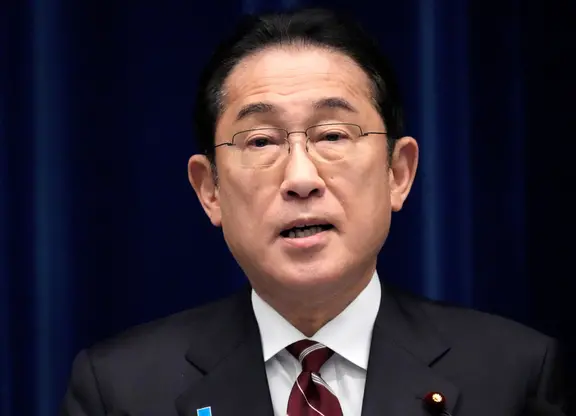US President Donald Trump blocked Monday an unsolicited bid by Singapore-based Broadcom to take over smartphone chipmaker Qualcomm, citing national security concerns.
Trump issued an order barring the proposed mega-acquisition, saying there is credible evidence such a deal "threatens to impair the national security of the United States," according to a White House statement.
Happier times: US President Donald Trump hugging Broadcom CEO Hock Tan after he announced the repatriation of his company to the United States, November 2, 2017.
The order came despite Broadcom's assurances that it would complete its move to the United States by early April, ahead of a planned Qualcomm shareholder vote on the 117 billion US dollar deal – meaning any national security concerns were moot.
"Broadcom's proposal to acquire Qualcomm has always been premised on the completion of Broadcom's previously announced plan to redomicile," the company said in a statement.
"In short, US national security concerns are not a risk to closing, as Broadcom never plans to acquire Qualcomm before it completes redomiciliation."
Broadcom's Asia Operations Headquarter in Singapore.
The Treasury Department said in a letter over the weekend that on three separate occasions Broadcom had violated a Committee on Foreign Investment in the United States (CFIUS) order by failing to give advance notice before taking actions such as filing takeover-related securities filings in the United States.
A CFIUS investigation of the proposed acquisition so far has "confirmed" national security concerns earlier identified by US officials, according to the letter.
Trump ordered Broadcom and Qualcomm to "immediately and permanently abandon the proposed takeover."
The rival chip giants were told to notify CFIUS in writing that all aspects of the order had been followed.
Battling boards
Qualcomm has been maneuvering for weeks to rebuff Broadcom's unwanted advances, and had asked CFIUS to look into national security implications of a merger.
Qualcomm rejected multiple Broadcom offers during weeks of parries and thrusts between the two firms since the proposed deal emerged in November.
The company, which makes most of the world's microprocessors for smartphones, had postponed until April 5 an annual shareholders' meeting set for this week after secretly requesting a national security review of Broadcom's bid.
CFIUS noted that a Broadcom-Qualcomm merger could weaken Qualcomm's leadership in the field. This would likely help Chinese competitors such as telecommunications firm Huawei, particularly in the emerging 5G blazing fast wireless internet.
(AFP)
 简体中文
简体中文





















